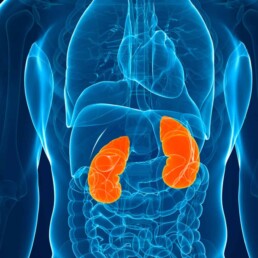Plastic is everywhere. From food packaging to children’s toys, plastic has become a ubiquitous part of our lives. As we rely more heavily on these synthetic materials, the potential health hazards they pose are becoming increasingly apparent.
By Majd Isreb, MD, FACP, FASN, IFMCP
The infiltration of plastic derivatives: Phthalates and BPA
Phthalates and bisphenol A (BPA) are chemical compounds that are added to plastics to enhance their properties. Phthalates are used to make plastics more flexible and resilient, while BPA is used in the production of polycarbonate plastics and epoxy resins. The problem is that these compounds aren’t always confined to plastic materials. They can leach out and contaminate the environment, including our food and water. Consequently, we may ingest these plastic derivatives, sometimes daily, without realizing it.
How plastic derivatives impair kidney function
Emerging research suggests a correlation between exposure to plastic derivatives and kidney damage. A study published in the “Science of The Total Environment” revealed that exposure to phthalates may lead to the development of chronic kidney disease (CKD). The exact mechanism is yet to be fully understood, but it’s believed that phthalates induce oxidative stress, triggering an inflammatory response in the kidneys, leading to gradual damage.
Similarly, BPA exposure is associated with negative effects on kidney function. Animal studies have shown that chronic exposure to low doses of BPA can lead to kidney fibrosis, a condition characterized by excessive accumulation of extracellular matrix, impairing the kidneys’ filtering capability.
Join us to end the kidney disease epidemic and receive the FREE Report “5 Pitfalls to Avoid When Caring for Kidney Patients”
The vulnerable group: Children and plastic derivatives
Unfortunately, children are the most vulnerable to the detrimental effects of plastic derivatives on kidney health. Their developing bodies are more susceptible to the toxic effects of these chemicals. For instance, a study published in “Kidney International” found a significant association between BPA exposure and kidney dysfunction in children. It is, therefore, imperative for us to limit children’s exposure to plastic derivatives to protect their long-term kidney health.
Minimizing exposure to plastic derivatives: Strategies for kidney health
Avoiding plastic derivatives entirely can be challenging due to their widespread use. However, there are steps we can take to reduce our exposure:
- Opt for BPA-free and phthalate-free products whenever possible.
- Limit the use of plastic containers for food and drink, particularly when heated, as heat can encourage the leaching of these chemicals.
- Use glass, stainless steel, or other safe materials for food and drink storage.
- Encourage policy changes to regulate the use of these chemicals in consumer goods.
By understanding the connection between plastic derivatives and kidney damage, we can take action to protect ourselves and our loved ones.
The bottom line
While we may appreciate the convenience plastic brings to our lives, we need to be aware of the hidden dangers lurking within. Plastic derivatives such as phthalates and BPA, through their insidious infiltration into our daily lives, pose a risk to kidney health. By raising awareness and making conscious choices, we can mitigate these risks and prioritize the health of our kidneys.






